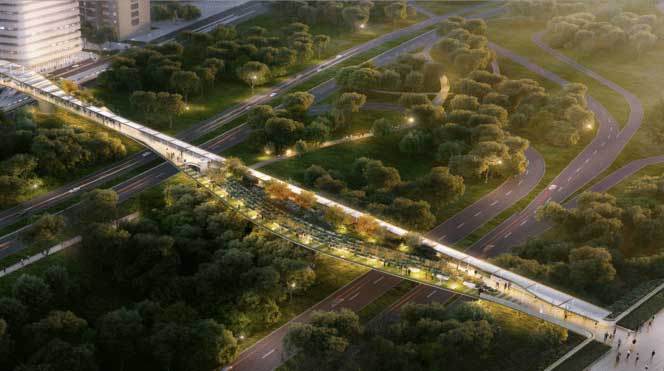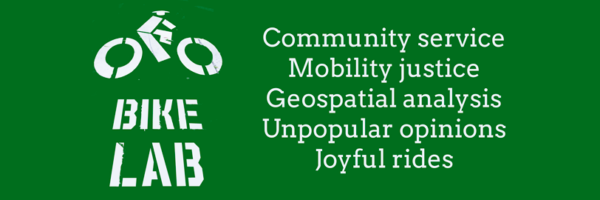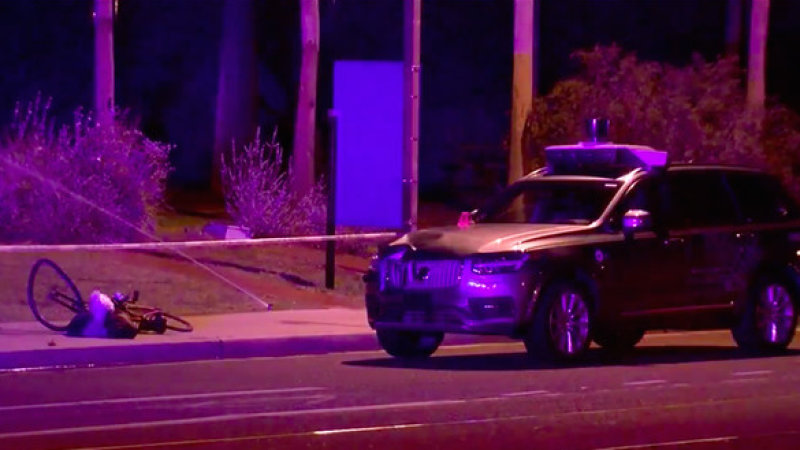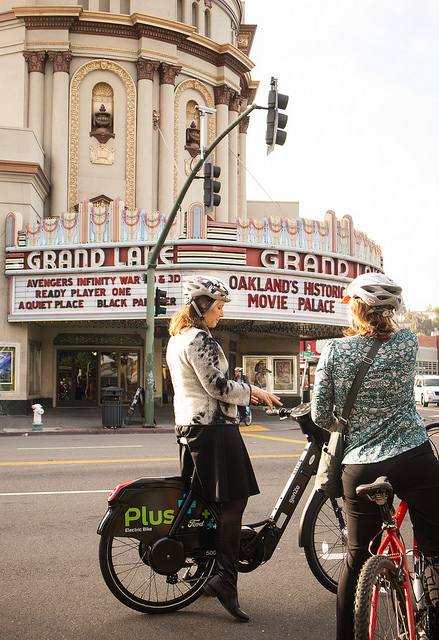After Amazon finally decided who would win its HQ2 sweepstakes (psych! It’s just two offices we were going to open anyway), there has been some talk about the pedestrian and bike improvements, particularly near the Crystal City site. Areas near airports are notoriously bad for non-motorized users; having biked into and out of multiple airports, I can tell you there is usually no signage at all, and often no road other than the massive freeway-scale access roads going to the terminal. I haven’t ridden to Washington National but it looks typically awful on Google Earth.
So, as part of the prize-winning bid, Arlington agreed to build a $30M pedestrian bridge (engineering estimate: actual cost will be $50M+) from the Amazon site to the airport. Some urbanists like the idea. Steve Davis of Transportation for America (a transportation-neoliberal think tank) is quoted as saying of the project, “It is kind of like the High Line (in New York City).”

This project has only two similarities to the High Line: it’s elevated, and cars aren’t allowed. Other than that the comparison is absurd. This is a quarter-mile airport corridor. No matter how you dress it up, no one will spend any time there to overlook the freeways and railway yards. And it will access virtually nothing other than the Amazon campus itself.
If Amazon wants an airport corridor to its HQ, it should pay for it. Instead, taxpayers are on the hook for this corporate boondoggle. And of course, that’s the HQ2 game, which is repeated by all kinds of corporations across the country: Shop yourself around, playing the cities off against each other, trying to find the one that will give you the most resources. Or in this cynical case, don’t even bother; just take from both of them.
The power dynamics present in these negotiations are all weighted in favor of the corporation. It is likely that no one on the Arlington County Board has ever negotiated a deal of this scale. The other items on their docket are things like the opening of an elementary school, or approval of a permit for a beer garden. The Board Chair earns $60K/year. The organization is just not equipped to negotiate on a level playing field with a company worth $700B. And the company knows that, as do the sports teams, big box retailers, and others who exploit this power dynamic.


